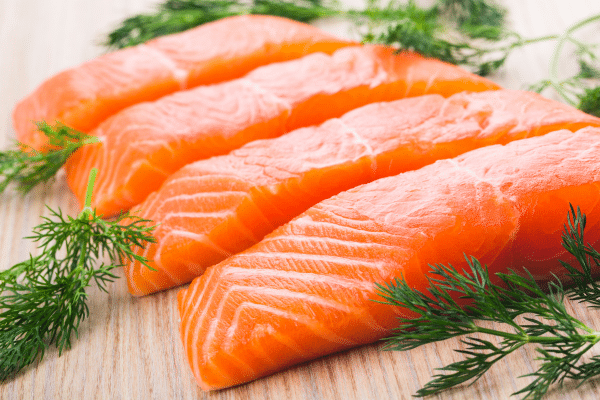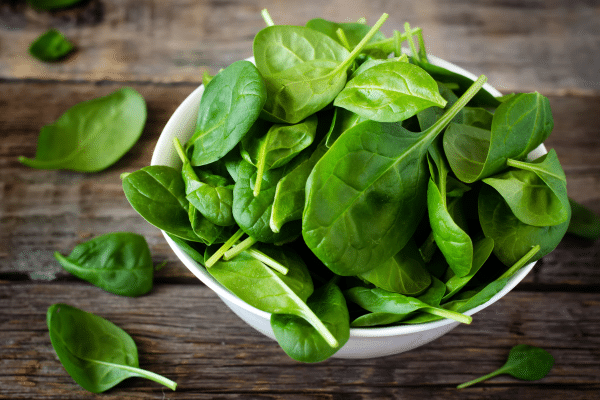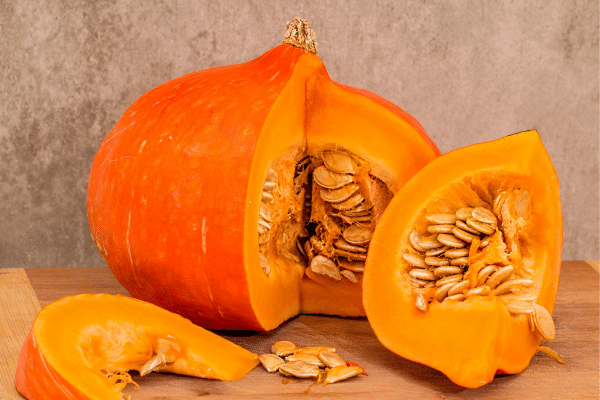Proper nutrition plays a crucial role in maintaining the health and well-being of dogs. Just like humans, dogs benefit from a balanced diet enriched with nutrient-dense foods. Superfoods, known for their high nutritional value, offer a myriad of health benefits that can enhance a dog’s diet. These natural foods are packed with vitamins, minerals, and antioxidants, supporting various aspects of canine health, from boosting the immune system to improving skin and coat condition. This blog post explores the best superfoods for dogs, highlighting how each can contribute to a healthier, happier pet.
Contents
Carrots

Carrots are a powerhouse of nutrients, offering a host of benefits for dogs. Rich in beta-carotene, which converts to vitamin A in the body, they are essential for maintaining good eye health and vision. Besides their eye health benefits, carrots are known for their dental advantages. Chewing raw carrots can help remove plaque from a dog’s teeth, promoting oral health. Moreover, carrots are low in calories, making them an excellent snack for weight management. Their crunchy texture and sweet taste also make them a favorite among canine companions.
Incorporating carrots into a dog’s diet can be done safely and effectively. It’s important to start with small amounts to gauge the dog’s digestive response. Cooked or raw, carrots should be cut into manageable pieces to prevent choking. While they are beneficial, carrots should be given in moderation as part of a balanced diet. Overfeeding can lead to an excess of vitamin A, which can be harmful in large quantities. Therefore, it’s essential to consider the overall diet to ensure it remains balanced and nutritious.
Blueberries

Blueberries are renowned for their antioxidant properties, which play a crucial role in combating oxidative stress and cellular damage in dogs. These small fruits are packed with vitamins C and K, along with fiber and phytochemicals, contributing to overall health and wellness. The antioxidants in blueberries help bolster the immune system, reduce inflammation, and can contribute to a healthy aging process. Furthermore, their low-calorie profile makes them an ideal treat for dogs, especially those needing weight management.
Feeding blueberries to dogs is straightforward and requires little preparation. They can be served fresh or frozen, offering a refreshing treat, especially in warm weather. However, portion control is essential to prevent digestive upset. A handful of blueberries can be a safe treat for most dogs, but it’s important to observe how each dog reacts to this new addition to their diet. Gradual introduction and monitoring are key to ensuring that blueberries remain a healthy treat without causing gastrointestinal issues.
Salmon

Salmon is a fantastic source of omega-3 fatty acids, which are crucial for maintaining a dog’s healthy skin and coat. These fatty acids also provide anti-inflammatory benefits, which can help dogs with arthritis or other inflammatory conditions. Omega-3s support brain health, making salmon particularly beneficial for puppies and older dogs. The high-quality protein in salmon aids in muscle development and maintenance, contributing to overall health and vitality. Serving cooked, boneless, and skinless salmon can significantly enhance a dog’s diet, providing essential nutrients that promote well-being.
When introducing salmon to a dog’s diet, it is vital to ensure it is cooked and free from bones to avoid any potential health risks. Raw fish can contain harmful pathogens, so it’s important to cook salmon thoroughly. Small portions are recommended to start, gradually increasing as the dog adjusts. Too much salmon can lead to weight gain and other health issues, so it should be given as part of a balanced diet. Owners should observe their dogs for any signs of food allergies or sensitivities when first introducing salmon.
Sweet Potatoes

Sweet potatoes are rich in dietary fiber, which aids in digestive health, and are an excellent source of vitamin A, vitamin C, and several B vitamins. These nutrients are vital for maintaining good vision, immune function, and overall cellular health. Sweet potatoes also provide antioxidant benefits, helping to reduce the risk of chronic diseases and support healthy aging. Unlike white potatoes, sweet potatoes have a low glycemic index, making them a suitable and healthier option for dogs, especially those needing to manage their weight or with diabetes.
Incorporating sweet potatoes into a dog’s diet should be done with care to avoid gastrointestinal upset. They should be cooked without any added salts or spices to make them safe for canine consumption. It’s best to introduce sweet potatoes gradually, in small, manageable portions, to allow the digestive system to adjust. These can be served as an occasional treat or mixed with regular dog food to enhance its nutritional value. However, like all foods, sweet potatoes should be offered in moderation to prevent nutrient imbalances.
Spinach

Spinach is a nutrient-dense leafy green that offers numerous health benefits for dogs, including high levels of iron, antioxidants, and vitamins K, A, and C. These nutrients support bone health, immune function, and overall vitality. Spinach also contains compounds that can help detoxify the body and support healthy digestion. However, due to its high oxalic acid content, which can inhibit calcium absorption and lead to kidney stones, spinach should be given in moderation and not as a staple in a dog’s diet.
Introducing spinach to a dog’s diet should be done cautiously to monitor any adverse reactions, such as gastrointestinal discomfort or signs of kidney issues. It should be served cooked and in small quantities as part of a varied diet. Cooking spinach reduces its oxalic acid content, making it safer for dogs to consume. Pet owners should ensure that spinach is plain, without any added oils or seasonings, to avoid potential health issues. The key is to use spinach as a supplemental treat rather than a primary ingredient in a dog’s diet.
Pumpkin

Pumpkin is widely recognized for its digestive health benefits in dogs, primarily due to its high fiber content. This makes it an excellent food for aiding in regularity and can help alleviate symptoms of both constipation and diarrhea. Pumpkin is also rich in vitamins A, C, and E, as well as potassium and iron, which contribute to overall health and vitality. Its low calorie and high nutrient profile make it an ideal choice for dogs needing to manage their weight.
Serving pumpkin to dogs is easy and can be done using fresh or canned puree, provided it is plain and free from added sugars or spices. It can be mixed with regular dog food to enhance flavor and nutritional value or used as a gentle remedy for digestive issues. Starting with small quantities is advisable to ensure it agrees with the dog’s digestive system. As with other foods, moderation is key, and pumpkin should be a complement to a balanced diet, not a primary component.
Eggs

Eggs are a superb source of highly digestible protein and contain all the essential amino acids needed by dogs for optimal health. They also offer a variety of vitamins and minerals, including vitamin B12, riboflavin, selenium, and fatty acids, which support skin and coat health, cell function, and overall metabolic processes. Eggs can be a nutritious addition to a dog’s diet, offering both variety and a protein boost. They are especially useful for dogs with specific dietary needs or those requiring extra protein in their diet.
Feeding eggs to dogs should always be done with care to avoid any health issues. They should be cooked without any oils, butter, or seasonings to prevent gastrointestinal upset or pancreatitis. While eggs are generally safe for dogs, they should be given in moderation to avoid excess fat and cholesterol intake. Starting with a small amount and observing the dog’s reaction is essential before making it a regular part of their diet. Overconsumption can lead to obesity and other health complications, so balance is crucial.
The Bottom Line
The inclusion of superfoods in a dog’s diet can offer significant health benefits, supporting everything from digestive health to skin and coat condition. Each superfood discussed brings unique nutrients that can enhance a canine’s diet, contributing to their overall well-being and longevity. However, the key to a healthy diet is balance and moderation. It is essential to introduce new foods gradually and observe the dog’s reaction. Consulting with a veterinarian before making any significant changes to a dog’s diet is crucial to ensure it meets their individual nutritional needs. Ultimately, the goal is to provide a varied and balanced diet that supports a dog’s healthiest and happiest life.


